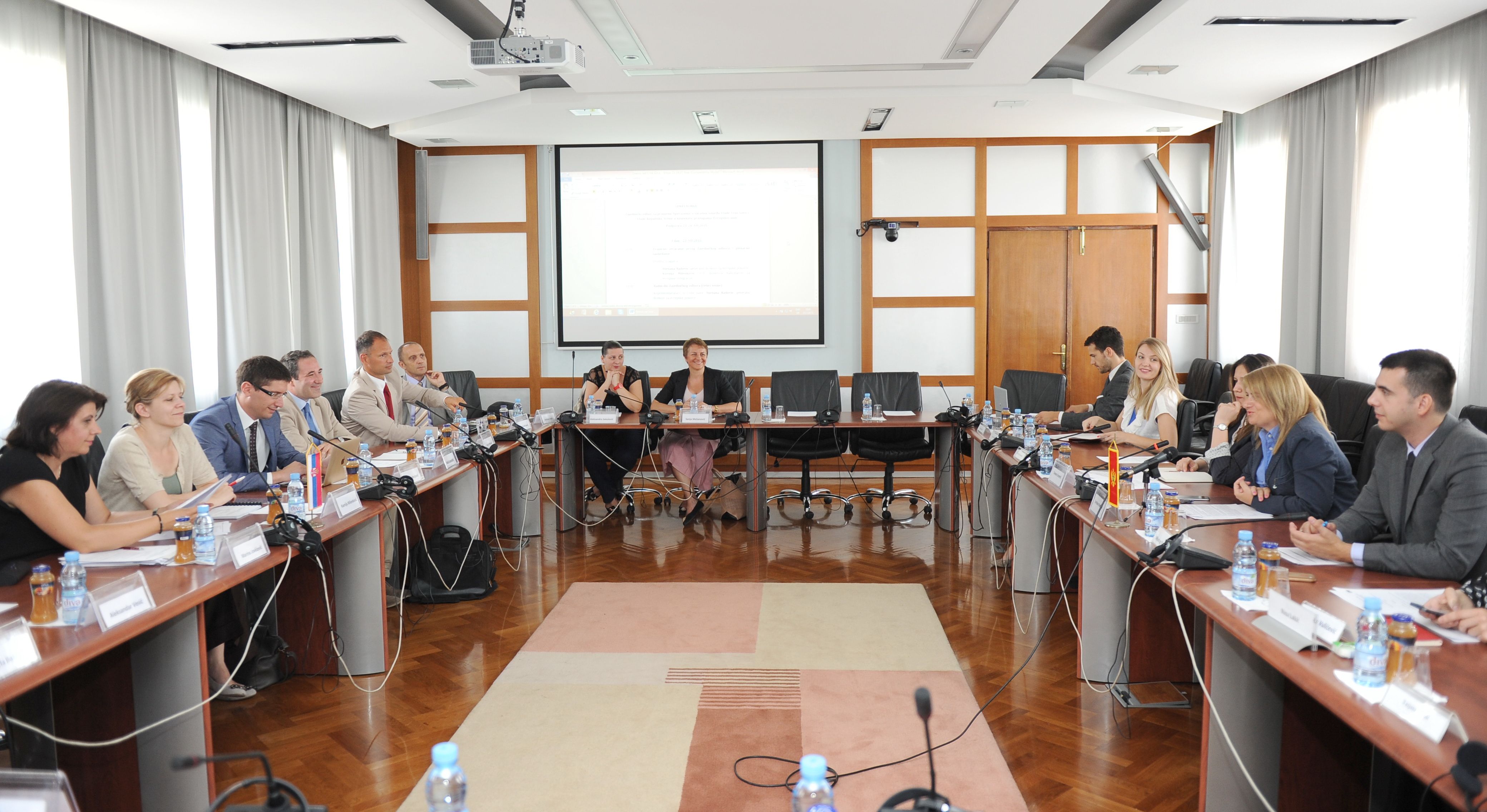



| Friday, 24 July 2015. | |
| Montenegro and Serbia: EU membership through cooperation | |
| + larger fontnormal font- Smaller font |
 The first meeting of two days of the Joint Montenegro-Serbia Committee held in the context of EU integration wound up in Podgorica today. The first meeting of two days of the Joint Montenegro-Serbia Committee held in the context of EU integration wound up in Podgorica today.The meeting was co-chaired by Montenegro’s Director General responsible for European Affairs Snezana Radovic and Acting Director of the Serbian European Integration Office Ksenija Milenkovic, who welcomed the establishment of this body and pointed to the importance of cooperation between the Western Balkan countries for their progress in the process of EU negotiations. Representatives of the European Integration Office, Ministry of Foreign Affairs, Ministry of Economy, Ministry of Agriculture and Environmental Protection, as well as representatives from the Office of the Minister without Portfolio responsible for European integration and the Office of the Negotiating Team Head (Chief Negotiator) participated in the meeting on behalf of the Republic of Serbia. The first JC meeting discussed the past and future cooperation between the two countries in the context of EU integration, and exchanged views and shared experiences in the implementation of the SAA, functioning of the structure and harmonization with the EU Acquis. Members of the negotiating groups, on both sides, presented the current status and exchanged experiences in terms of conducting negotiations on Chapter 1 - Free movement of goods and Chapter 27- Environment. The Montenegrin side presented the course of their EU negotiations, with a focus on the results achieved and further commitments and plans. Representatives from the Ministry of Foreign Affairs and European Integration outlined the structure for the implementation of the Stabilisation and Association Agreement and pointed to the importance of close and quality cooperation with the Parliament of Montenegro or the Parliamentary Committee on European Integration, and with the civil society actively participating in the negotiating process with the EU, thus adding a special quality to Montenegro’s model of negotiations. Also presented were the activities related to the process of harmonization with the EU Acquis, as well as the implementation of Montenegro’s EU Accession Agenda. Representatives of the Republic of Serbia highlighted the importance of maintaining the dynamic of the accession process, expressing the expectation that the first chapters in the negotiations between Serbia and the EU would be opened by the end of the year. In this regard, they provided a cross-cutting view of the course of the past negotiating process in Serbia and pointed to the modalities of getting the civil sector involved in the negotiating process through the concept of a Convention, ensuring that full consideration be given to the recommendations of civil society throughout all stages of the process. They reminded of the importance of regional cooperation as a driver of regional development and, in this context, stressed the importance of planning and implementing regional interest projects. In the context of reviewing the current status of the negotiations on Chapter 1: Free movement of goods, the Montenegrin side has presented activities on the development of key documents in this field, such as the 2014-2018 Strategy for the implementation of the Acquis in the area of free movement of goods and the related Action Plan, as well as the draft Strategy for free movement of goods. In the part of the meeting devoted to Chapter 27 in the negotiations: Environment and Climate Change, the Montenegrin side laid out the drafting process of a comprehensive Strategy and Action Plan for full harmonization and implementation of the EU Acquis and pointed out that there was considerable legislative activity in this area. It was commonly assessed that the meeting was a good opportunity to take stock of the achievements so far, through exchange of information and experience, and to consider the challenges lying ahead and the obligations related to the integration process. In this context, they exchanged opinions on common needs in the negotiation process and explored possibilities for its intensification in specific sections and areas of the Acquis. In view of the fact that Montenegro is the first country to conduct negotiations based on the new approach and that it has advanced most in approaching EU membership, the Montenegrin institutions have reiterated the readiness to make their accumulated knowledge and experience in the negotiation process available to colleagues from Serbia and other countries in the region. |